|
When it comes to developmental assistance to individuals and communities in need, it is of the upmost importance that we look to long-term, transparent and effective interventions.
When the largest investor in healthcare, social welfare and environmental sustainability is only run in increments of 3 years (The Australian Federal & State Government), we are already fighting an uphill battle for long-term, effective investment. Incremental positive change traditionally leaves less time and opportunity for handshakes and announcements for politicians seeking re-election. When a party responds to emotive and divisive issues with the intent of re-election, we see investment in short term programs, big announcement and unaccountable, vague community development interventions. When the same three-year term is plagued with in-fighting, leadership spills and policy back-flips, we miss out on even more opportunities for long-term, transparent, developmental investment. In our view, the government exists to improve the equality of opportunity for all citizens of the country, in order to do this, long term investment needs to be made into transparent and effective frameworks for assisting communities and individuals in need. Less time in-fighting, less time pandering to the extreme ends of the political spectrum and more time leading the charge on actual innovative investment, community development and equality of opportunity. Looking for ways to be world leaders in the development of people and knowledge. Investing in sustainable and effective means of education, energy production, housing and small/medium business development. Working to ensure that we have a healthy, happy and well supported population. When the government isn’t even focussed on getting the job done, when politicians aren’t held accountable for their policy backflips and blatant misuse of taxpayer dollars, when we give the government permission to start impeding the opportunities of certain groups of people, we are setting ourselves up for a difficult road ahead. One where ultimately, everyone suffers. It is worth taking the time to investigate the policies of the major and minor parties. It is worth holding them accountable to more than the most recent ‘complaints’ in the divisive and sensationalist press. It is worth taking the time to understand that everyone will need help at some point, in a variety of ways, and that the best environment is one that provides that help to everyone. We need to look to long term investment in not only the things that affect us right now. “The true meaning of life is to plant trees, under whose shade you do not expect to sit.” —Nelson Henderson. The best kind of investment is in not only making the country great for all people today, but for all people tomorrow as well. Sometimes those in charge of governing need some extra reminding of that fact.
Today we are hearing rumblings of yet another leadership challenge for the role of Prime Minister of Australia.
It is alleged that perhaps Peter Dutton, minister for Home Affairs, will potentially challenge Malcolm Turnbull, Leader of the Liberal Party and Prime Minister of Australia. With the overwhelming discussions of the difficulties faced by so many, whether it be economic difficulty, mental health issues or community cohesion, we believe that the one of the most important avenues to addressing these issues is understanding, listening and compassion. Compassion and understanding for the circumstances that lead people to act in a certain way. Compassion and understanding for the circumstances that prevent individuals and communities from achieving their full potential and being able to take advantage of opportunity. Compassion and understanding that not everyone has the same lived experience as us, and, rightly or wrongly, that informs the way that you see the world. Now we would like to turn that compassion and understanding to Minister Dutton, but it is a little bit difficult, with the details of his life and career prior to entering parliament being a little bit vague. We note, however, that in response to the asylum seekers he says to The Australian; “It’s essential that people realise that the hard-won success of the last few years could be undone overnight by a single act of compassion in bringing 20 people from Manus to Australia.”* We could not disagree further, with the notion that compassion is a sign of weakness. Compassion is a sign of strength, competence, unity and a strong sense of identity. Compassionate treatment of those in need is a clear sign that we are a country with strong, generous and welcoming values. That we pride ourselves on working to improve the lives of all people in the country, whether they are born here or not. Compassion is an indication that we are competent and skilled at taking people who have little, and helping them find their way to having enough. We believe that Australia should strive to be the best place in the world for anyone to be. The best place for equality of opportunity. The most accepting and understanding country in the world, and the most compassionate. Compassion is not weakness. Being scared of people in need, is. *Source Article
When we speak about feminism, we are speaking about;
The advocacy of women's rights on the ground of the equality of the sexes. When we speak about black lives matter, we are speaking about; The advocacy against violence and systemic racism toward black people. When we speak about wealth inequality, or social inequality, we are speaking about; The uneven distribution of resources across a given society. It is important that we have language available to discuss the concerns and barriers to opportunity that are faced by different communities around us. We must acknowledge that some people inhabit multiple ‘communities’ and that each one of these groups may face very real and complex barriers to opportunity. By acknowledging these kinds of barriers, without ranking them, we are able to discuss them sensibly, to talk about the most relevant and accessible ways to remove barriers. Some communities have overlapping concerns. Many communities have groups and sub-groups in them that have differing, diverging or independent concerns. It is not to say that any are more or less valid or important, certainly some concerns affect more or less people, but that is not to say that they are less real, or less important. They simply affect people on a smaller scale. In some instances, removing barriers to smaller, granular communities is a very effective way to begin a pathway to improving opportunity for larger, more homogeneous groups of related people. For instance, attending the needs of Refugee South Sundanese Nuer Women in the Western Suburbs of Melbourne, might be an effective way to implement, workshop and develop strategies to assist migrants generally in the future. In other ways, removing barriers to large, homogeneous communities containing many sub-groups is more effective – i.e. universal healthcare for everyone. This is far more effective than trying to assess and determine how each individual should get funded or not funded for healthcare. Chimamanda Ngozi Adiche, in her book We Should All Be Feminists notes that we should not be limited by the stereotypes of individual labels like feminist, but that we should use an understanding of the need to address things like gender inequality through the proper language. This is to say further, that we should take individual responsibility to understand the needs and inhibitors to productive discussions on these issues in all directions. Instead of saying that you believe in human rights (which should begin a conversation about the rights of all humans), to say you are a feminist is to acknowledge “The specific and particular problems of gender.” We wouldn’t tell someone who had bowel cancer to simply say they were ‘sick’, that would not acknowledge the specific and particular nature of their illness. Of course, everyone with bowel cancer is sick, in the same way that feminists can be concerned with human rights for all. The importance of identifying barriers is so that we can address the causes and effects of these inhibitors and remove them. We need to stop comparing and fighting among issues, saying things like “why be a feminist, why not care about all human rights?”, “Why black lives matter? Why not all lives matter?”, “Why are we talking about Indigenous disadvantage, what about the other poor people?”. To name an issue is to have a discussion about that issue. Certainly, there is overlap between issues, but there is nothing less productive than to enter a discussion about the disadvantage experienced by one community, with something that looks like “what about this other community?”. Yes, we can speak about various kinds of disadvantage and inequality, but we must look at each school of difficulty for what it is, not what it is in comparison to other inequalities of opportunity. Looking at how different kinds of disadvantage inter-relate is important, fighting about which kind of disadvantage is more important to talk about at any given moment, is counter-productive and we should probably do it less. Practice understanding, practice learning about experiences different to yours, and as always remember, Just Be Nice.
Diversity won’t magically appear by passively saying that we want more of it.
Diversity needs to be developed. It needs to be developed by improving equality of opportunity in diverse communities. Diverse communities mean different things to different industries. Diversity can come from gender, age, country of birth, level of education, type of education, interests, socio-economic status and background. Lived experience and missed experience. Where people are from and where they live currently, what their family situation looks like and the way that they process information. Diversity is about casting a wide net and finding ways to incorporate people from all areas of the net into what you do. Unfortunately, opportunity is useless if people who are on the receiving end of this opportunity don’t recognise it. It is ineffective if there are people who believe that this opportunity is ‘not for them.’ We need to spend time investing in communities that are traditionally under-resourced, under-skilled and less confident that the opportunities for development that exist in the world, apply to them. Diversity won’t happen if we attempt to develop it in silos. You can’t simply demand that we have more female engineers, without first engaging young people in developing the relevant building blocks of knowledge, upon which they can become engineers. You cannot demand that there are more people of African descent working as lawyers without developing the skills, confidence and experience of those communities to understand, what a lawyer is, what they do, why you would want to be one, what you would need to do to become one and why it is possible for you to do that. Identifying opportunity blockers and removing them. Attempts at diversity do not start in the boardroom, they start in diverse communities. If you do not have a single board member who did not go to an independent school, then is gender or ethnic background the only diversity that you need to improve? Or can you address the gender and ethnic diversity issues by developing individuals from resource-poor environments of all ethnicities and genders? Is diversity of experience just as important? An interesting element of our community-based diversity development programs is also addressing the fact that technically, you cannot ask diversity related questions when hiring people. You cannot ask if someone is a Muslim, or Sudanese, or if they’re pregnant or if they grew up in a resource-rich or resource-poor environment. You can guess a few things by looking at someone, but it is illegal to hire or not hire someone based on their gender or ethnicity. What if you had a steady stream of diverse, work ready, skilled, willing and able candidates coming through as you looked for hires? What if you didn’t need to ask any diversity questions because you knew that the candidates came from diverse backgrounds? What if they came not looking for charity jobs in order to meet diversity hire quotas, but came ready to go. Ready to contribute in a relevant and meaningful way to the work that you do? At the Just Be Nice Project we identify links between available development opportunities and desirable industry skills. Working to build programs that improve equality of opportunity for diverse communities, supporting their development and bringing skilled, engaged individuals to industry. Diversity starts through the support of community development, it is a long-game, but one that can pay big dividends to the industries and organisations that support it. If you are looking for ways to improve diversity in your organisation. Get in touch. We'd love to hear from you.
Imagine a scenario where you are in need of help.
Perhaps you are homeless, perhaps you are a struggling single parent. You have been battling this scenario for many years, you have made efforts to improve your situation, but it is exceptionally difficult. From time to time, over the years, people have popped in, asked for your story. They have listened, empathised, express sympathy. You have told them your story, your fears and difficulties. It is emotional labour. Exhausting. You trust that they care. Then they do one thing for you, maybe two… Maybe you never hear from them again. Maybe after the story they don’t do anything. Sometimes, after a big effort of help, for a period of time, when it all gets a bit much for the acquaintance or friend, when the service runs out of resources, or when the family lacks the material means to continue to assist. Then, after the glimmer of hope. After the baring of your soul and exposing your most vulnerable fears and difficulties, nothing. The promise of help, the promise of understanding and a feeling of connection and possibility. Then nothing. Now imagine this happens over and over again. And over and over again. Eventually your ability to trust that good things can happen, that help is real and might work is damaged. Maybe irreparably. When real help turns up, after all of these disappointments. When actual opportunity knocks, how would you have the capacity to not only recognise it, but to take it up wholeheartedly? Consider if surgeons started surgery before they were confident that they knew what was wrong, or that they started doing surgeries without taking the time to do the training and learning about how to diagnose and perform surgery. Consider if they started operating before they had the resources to finish the surgery, stopping halfway and leaving you open and vulnerable on an operating table. We would consider that to be negligent, we would not consider ‘isn’t some surgery better than none’ to be an adequate excuse. Likewise, sometimes rushing into ‘help’ without proper a proper understanding of what is happening, what is needed to help and the resources to help can be worse than waiting, taking your time and ‘not helping’ right away. People in need, do indeed need people to be nice. We can all be nice, if we are already nice, we can all be nicer. It is harder to do good. Doing good requires time, dedication and resources. Doing good requires more time, but being nice can happen right now. If you find yourself in a situation where you feel compelled to do good for someone in need, maybe take a moment to audit your capabilities and the needs of the person you are speaking to. Is it a moment to Be Nice, or is it a moment to Do Good? Be honest with yourself and with the person in front of you. How many botched surgeries would it take for you to distrust surgeons and perhaps end up avoiding life-changing or life-saving surgery because you'd been let down before? If that same surgeon had simply said, "I don't know just now. I can't do anything right at this moment, but I am working to get the skills and resources together to be able to fix this for you or others in the future. Right now I can be nice, be understanding and apologise that the help that you need is not available. I can seek out people who may be able to help, but I'm not sure where they are or where to start. Right now, I can give you a coffee, a sympathetic ear and a moment of empathy and understanding. I am sorry that the help is not right here for you. I will help those who help others so that this does not remain a problem for ever." In the future, the person needing help may indeed have the trust required to buy in to the help, when it finally arrives. Improving the process and outcomes for everyone. We encourage everyone to be nice, on their own time, all the time. We help everyone to do good, ensuring that you become part of a process that provides the assistance that people need, when they need it, for as long as they need it. If you'd like to be a part of the solution. Subscribe and get in touch below. We'd love to have you. The influence of the religion paralyses the social development of those that follow it. No stronger retrograde force exists in the world. I believe that the reasons for ending all further Muslim immigration are both compelling and self-evident. -Anning
This week senator, Fraser Anning of the Katter Australia Party (Full Transcript here) addressed the Australian Senate..
Excerpts of the speech, party leader Bob Katter's response and Annings non-apology are all available to watch below. We cannot stress enough, this xenophobic, inaccurate, wildly inflammatory speech does nothing to advance the cause of improving equality of opportunity for any Australians. For a representative of 'Australian' Ideals, Anning seems to forget that the second verse of our national anthem begins with; "For those who come across the seas, we've boundless plains to share." Without even going into the abject abuse, disenfranchisement and continuing negative impact of colonialism on the Indigenous Australians, the current anthem for Australia includes room for those from across the seas. Not Europeans from across the seas. This divisive, hurtful and false rhetoric from our parliamentarians must be called out, but even further, their divisive and damaging actions must be called out too. This is not ok. Australia can absolutely do better. We see the very best in the opportunities for positive impact that can be had, through effective corporate and community engagement and management. Keeping people doing what they are really good at, on the road to effective impact, and making sure that people who need help, get the help that they need, when they need it, for as long as they need it. Keep looking out for each other, keep supporting the most vulnerable in our communities, and as always, Just Be Nice. While all Muslims are not terrorists, certainly all terrorists these days are Muslims. So why would anyone want to bring more of them here? - Anning
We tell people “It’s ok to not be ok” and that is true, it absolutely is.
We don’t tell people “It’s ok to be poor” Because we know it’s not. Not simply that it’s not ok for them. But that it’s not ok for us to know and do nothing. It’s not ok if we acknowledge that we aren’t doing everything we can to create an environment where everyone has an equal chance of providing for themselves and the people they care about. It’s not ok when we know that it is not simply a matter of ‘laziness’, or ‘not being engaged’, or ‘not caring’. The myth of the feckless poor is only an excuse for people to ignore the issues that disadvantaged communities and individuals face. We would do well to remind one another that poverty is not a lack of character, it’s a lack of cash. Trickle-down economic policies that ignore the responsibility of those with to contribute to improving the lives of those without. In a time of unprecedented economic success and growth, we have a responsibility to say that it’s not ok to be poor. We should be compelled to action to take responsibility for people that are doing it tough, dealing with the inequality of opportunity that affects the 2.9 million Australians that live below the poverty line. Over 1 in 10 Australians. Right now. If we are going to be concerned with mental health outcomes, as we should be, we need to acknowledge the fact that economic distress is a huge factor in emotional and relationship stress and other mental health issues. Feelings of hopelessness, an inability to take control of your life and get after the things you want to achieve, deep and constant feelings of uncertainty, feeling inadequate because you are struggling to provide for the people you care about. These are all very real mental health issues that stem from economic distress. It’s ok to not be ok. It’s not ok for us to not do anything about the factors that lead people to struggle in the first place. Just Be Nice. Be Good. Do Good.
Often we are asked about how it is possible to deal with particular issues.
Particular Issues. For many, the journey into the world of positive impact is sparked by a feeling of needing to do something about a particular issue. Often people search for things to do based on these particular issues, rather than searching for the most appropriate way to help people in need of help. They are not guided towards the most appropriate way to help based on what they do the best and what is most needed by those seeking help. This misdirection, taking the focus from effective help to particular issues, is exacerbated by the language that we use around these individual causes. The sector is constantly battling to promote issues as more important or more emotive than others, rather than focusing on the most important fundamental process; Ensuring people in need, get the help that they need, when they need it, for as long as they need it. Disadvantage doesn’t have one look. It isn’t limited to one particular issue, it is a complex web of many different factors and manifestations, often overlapping and interlinked, nuanced and time dependent. In the same way treating a scratch early prevents it becoming septicaemia, dealing with issues of inequality early can prevent them becoming life-threatening and community destroying. Working to fight disadvantage means working to level the playing field. At the Just Be Nice Project we believe that working towards an equality of opportunity for everyone is the only real way to build a system that helps anyone. So if it’s not about any particular issue, what is it about? Well, lets look at what disadvantage is. Among many things; Disadvantage is having the collective noun for you and your friends go from group to pack in the media. Disadvantage is having to share a white bread sandwich with vegemite three ways for lunch. Disadvantage is time on the phone negotiating bill paying extensions with every, single, service provider. Disadvantage is being kicked out of your rental property because you were late on the rent because someone ran into your car and you couldn’t afford to fix the car you need for work, and the whole rent this month. Disadvantage is failing school because you are busy looking after your sick mum. Disadvantage is having a disability and being unable to access the help you need. It is having the same disability and being unable to access the leisure and social activities we all need too. Disadvantage is getting a bill from DHS for the damage that was done to your rental property when your husband put your head through the plasterboard wall. Disadvantage is having Centrelink make an administrative error and not pay you for a fortnight, so that for two weeks you and your family are unable to eat. Disadvantage is getting too sick to work and not having any sick leave because you are a casual employee, and disadvantage is the scramble over the next few years to pay back those credit cards and money you borrowed. Disadvantage is having a mental illness, and nowhere to go. Disadvantage is coming out of rehab and having nowhere to go. It’s the only place offered to you being a harm-minimisation facility where people still take drugs. It’s avoiding that place because you want to stay clean, so you sleep on the street, and get told “Surely anywhere is better than sleeping on the street.”, “Ungrateful”, “Sort your life out”. Disadvantage is the kid in class who can’t concentrate, for years, because from the ages of 3-10 she doesn’t get sufficient breakfast or lunch and gets told she is dumb because she is ‘falling behind.’ By the teachers and ‘dumb’ by her peers. Disadvantage is waking up in the middle of the night as a 10 year old and checking to make sure that your Dad isn’t beating up your Mum in the living room. Disadvantage is all of these things, and many, many others. Disadvantage can strike people at any moment and some people are born into disadvantage. We believe that all people should have access to the help they need, when they need it, for as long as they need. We believe that it is possible to create extraordinary positive change in the world, by helping people make ordinary positive change, and we would love your support.
Often charities and charitable endeavours are started with the best intentions. Intentions to do something.
Perhaps you have engaged because you feel inspired by a particular person or cause, maybe you were moved to action because something happened close to home. When moved to action, how do you determine what the best course of action is? You can start with a simple, and important question to ask; But then what? You are inspired to move to action because you saw a homeless person on the street doing it rough? You want to give them a sandwich?... But then what? What happens next? Do they get the long-term support to deal with mental health issues, economic difficulty and other socio-economic pressures to take them from homeless to engaged, employed, housed and happy? Does that sound like too much? You are inspired to action after seeing how hard it can be for people leaving domestic violence situations. You donate sanitary goods to an organisation you see in your Facebook news feed… But then what? What happens next? Do they get support in housing for as long as they need it to re-establish themselves? Are they provided with moving services, economic assistance? Are the children moved to new schools or supported where they are? Are necessary training arrangements made to ensure that the parent leaving is going to be able to find gainful, relevant and adequate employment? Is the person they are leaving being given assistance, counselling and being managed in a way that reduces risk to the family and the community? Does that sound like too much work? We should be aiming to focus our efforts not on ‘Whether we did something’, but ‘Whether a complete outcome was achieved for the person/s we are trying to help.’. By focusing on the effort of the doer rather than the outcome for the person in need we have skewed the kinds of interventions available to the short-term, donor focused activities that might be nice to do, but aren’t necessarily doing the good that is required. If you were in hospital for a broken leg and someone gave you a beanie and some soup, then told you to be on your way, it is unlikely you would be happy with that. Sure, it’s nice, and thank you for the sentiment and effort, but it would be great if you could fix my broken leg please. That is the most pressing problem for me right now. If the broken leg was fixed (requiring the time, effort and resources of multiple professionals, a multi-billion dollar healthcare infrastructure and the means to pay for it all), and the person remained hungry and cold, that would be the perfect time to step in and give them soup and a beanie. The ‘But then what?’ question would be satisfied. The leg is fixed, hunger resolved, they’re no longer cold and can go home now. (Assuming this person has a home to go to). If we don’t emphasise solving problems for people in need before looking for short-term participation opportunities for people looking to do something, then we will continue to waste time and resources that could be used to great effect, simply through mismanagement. Being nice is important, and it revolves around what you do and how you act. Doing good is about the people you are helping. Doing good revolves around what happens for the person/s who need help. At the Just Be Nice Project we identify opportunities for impact and manage those resources into long term outcomes for people and communities who are experiencing disadvantage. Believing that people are capable of more than simply popping in for a moment to do some token activity under the guise of ‘doing good’, we believe in integrating solutions that allow people and organisations to benefit in a variety of ways from continued engagement with systems of assistance that are focused on outcomes for people in need. Your beanie and soup might be a wonderful help, at the right moment, for the right people. In another context it might be a shameful waste and an inefficient, donor-centric intervention. It’s simply a matter of timing and management, of both at-risk communities and donor resources. If you are a professional with skills in any industry, a talented hobbyist or an interested, intelligent and engaged individual, it is likely that the most good you can do will be utilising those skills. Not simply spooning soup into a cup or planting a tree. Those jobs are important, but skilled, effective help also requires skilled effective humans, doing what they are best at. Keep on asking, keep on improving and as always, Just Be Nice.
In response to yesterdays article Transactional Vs Transformational Impact, we received some excellent questions about why the NFP sector has a heavy focus on transactional altruism and transactional impact opportunities, so we thought we would take a moment to address some of these questions today.
“Why does the NFP sector do this? In my limited experience, very few of them seem to want your "help", just the transaction or series of transactions. And this raises questions about the money, where it goes, how much gets to the cause itself, etc. And when they want to engage with me, getting the usual phone call thanking me for my patronage, what my money has achieved and then asking for more money does not really do it for me. Guess the question is how you turn your donor base into an engaged and usable base of people that will get their hands dirty and really want to see the particular issue disappear.” While this is a complicated and multi-faceted question, we thought we would address some of the main reasons for the current state of affairs. Firstly, there are approximately 600,000 non profits in the country right now, which works out to roughly one NFP for every 40 people. Of those ~600,000, 56,377 are registered with the ACNC (Australian Charities and NFP Commission)*. This equates to one registered NFP for every 440 people. An entire organisation for every 40 people in the country. This doesn’t include all the individual Go-Fund Me, Crowd funding or private Paypal pages for various individual causes or fundraising opportunities. For fundraising purposes, if we divide the number of NFP’s by the number of Australians aged 15-80 we end up with an organisation for every 31 people. We aren't saying that people in the ages of 0-15 and 80+ are unable to contribute, but in the most active demographic of the population the ratio of people to organisations gets even more extreme. We will dive deeper into the nature and challenges of the concept of Non-Profits at another time, but for these questions it helps to give an idea of the scale of competition. For further reading on why non-profits aren’t the answer to solving problems as they operate currently, read this article The Problem With Transactional Altruism. The number of charities and the fact that 1% of non-profits take up over 50% of the available sector revenue means that the marketing of the remaining organisations must produce ‘bang for buck’. Unfortunately, after decades of chasing this ROI for marketing dollars, the overwhelming emphasis inside these organisations has gone from effective ‘help’ to effective ‘emotional activation resulting in donations’. If one organisation says, “Hey guys, we are doing a great job here, but we need lots of funding, we need it for a long time, require heaps of multi-level engagement and we can change lives but we won’t solve this complex problem for 10 years…” In the current climate, it makes it hard to get funding. Instead a typical campaign looks like this; Here is a picture, graphic, video or story about someone who has a very visible kind of disadvantage. Very visible is important because a guilt response needs to be activated right away in order to get a funding outcome. Queue – sick children in hospital, animals with very visible signs of abuse, shocking images of the outcomes of domestic violence, rough sleeping homeless people etc… The use of visible disadvantage plays to the short attention span of the audience, and seeks to get an emotional response on the spot in order to get them to donate. See Image – Feel Bad (Emotional/Empathetic/Guilt Response) – Get told that this organisation helps – Donate – Feel better… Repeat. There are several downsides to this kind of promotion, which has been going on for decades. Firstly, the emphasis on visible disadvantage has disrupted the education of the greater public regarding all kinds of disadvantage. It skews this understanding on many levels, including; selling the idea that, if you can see it, you understand the disadvantage. Organisations use this tactic to drive donations in every NFP sector. By telling you that “Your $5 changes someone’s whole life for the better.”. You are not only being encouraged to believe that you are getting great bang for buck, you are also learning that people who are doing it tough can be fixed for only $5. This ignorance of the real complexity of causes of disadvantage prevents the understanding, investment and investigation into long-term interventions to help all people who need help. A further downside of this misunderstanding of real disadvantage, the focus on short-term easy to understand interventions and the marketing of visible disadvantage, is that the government engages with the community in the same way. With only three-year state and federal terms, Governments are largely interested in ‘handshake’ moments and short-term interventions as part of the strategy for re-election. The government focus on good news stories and short-term outcomes has significant implications for the structural operation of the NFP space, as Government funding provides over 40% of total NFP funding. The two final, and perhaps most significant barriers to the efficacy of the NFP sector in Transformational Impact are; The focus on What they do rather than What happens to the person getting help. And; The focus on ‘Particular Issues Disappearing.’ We will touch on those issues over the coming days to prevent this being 10,000 words long. You can see when the vast majority of the funding of an industry comes from parties that doesn’t want actual engagement, there is little interest in making transformational change. The unfortunate downside of operating in that fashion is that now people are fatigued by visible disadvantage, aware of the inefficiencies of the sector, looking for more to do themselves and operating in an environment that hasn’t educated them sufficiently on the actual causes and realities of disadvantage in all its forms. The Just Be Nice Project was started in response to these inefficiencies. Creating an eco-system where transformational impact is the mandatory style of engagement. Focusing on getting people the help they need, when they need it, for as long as they need it, regardless of how they come to experience difficulty. We embrace the complexity by working in a dynamic way towards an outcome for the people and communities in need. If you were building a house, you wouldn’t give all the money only to the carpenter and hope for the best. You would let the builder manage the resources to all the trades and suppliers, having them come in and out, as required, until the job is done properly. We operate in a similar way, managing resources to keep the best resources coming in and out until people in need are housed, employed and have good mental health. It’s not always simple, but if you don’t demand a short time frame, it is nearly always possible. With a clear outcome for the people in need, efficient utilisation of skills, engagement and resources, and an acknowledgement that no one person or intervention is the complete answer, we are able to build dynamic, relevant and effective solutions to solve complex problems. Problems that need solving, create transformative experiences for those helping and those receiving help while educating everyone along the way. Thanks for the questions! Stay tuned for more discussion during the week. If you would like to ask more questions or get involved, sign up below. We'd love to have you on board. *As of 12/08/2018 |
Just Be NiceA collection of articles relevant to pursuing the effective execution of altruism in the search for equality of opportunity. Archives
February 2020
Topics
All
|
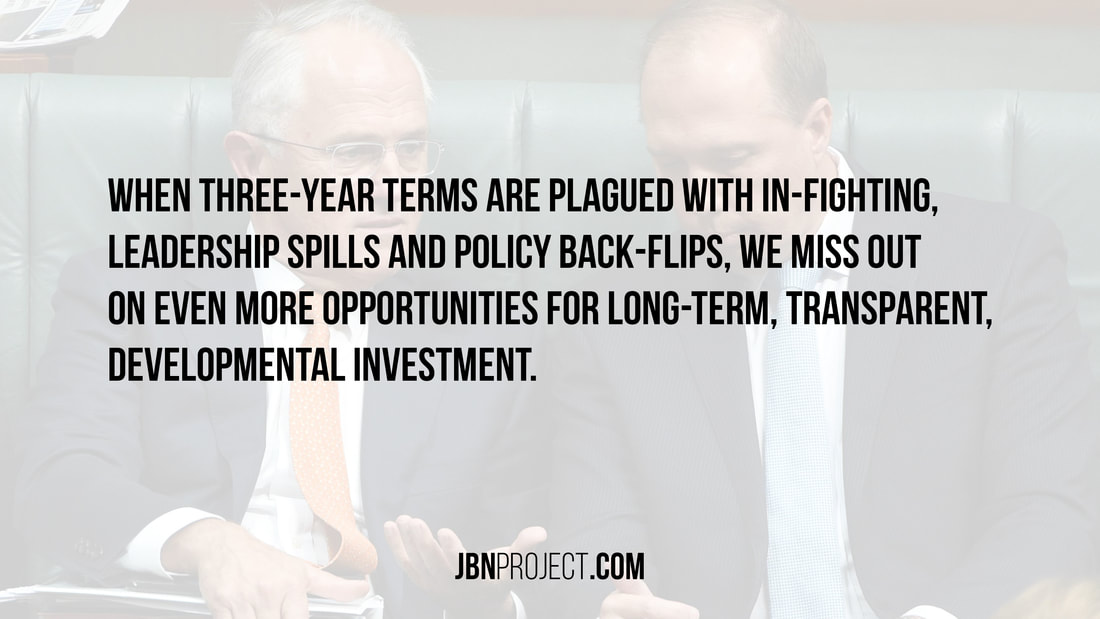
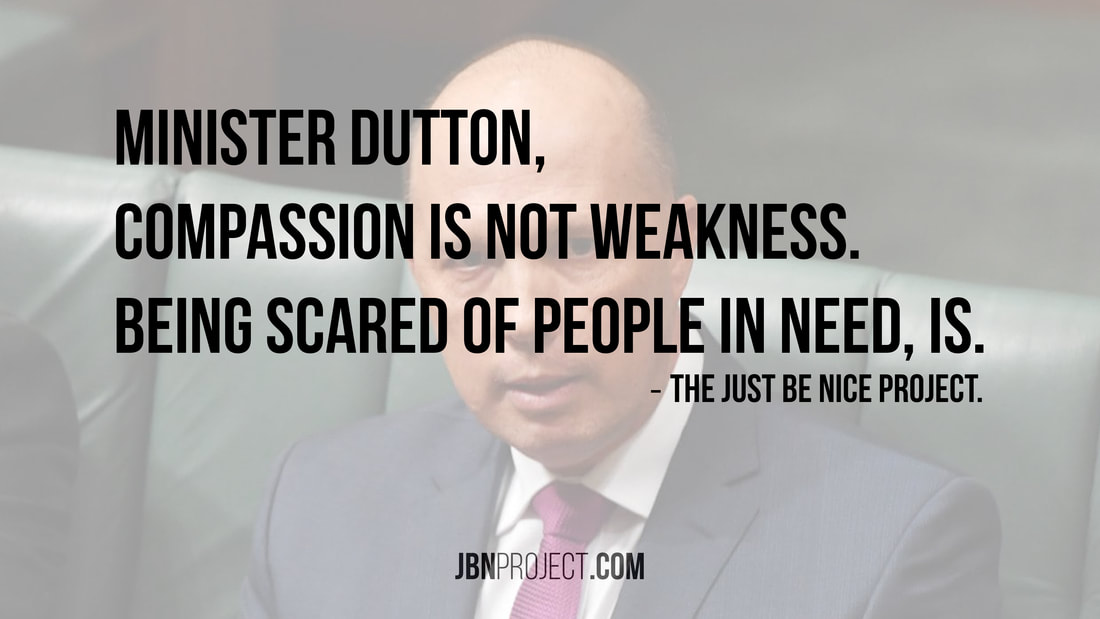
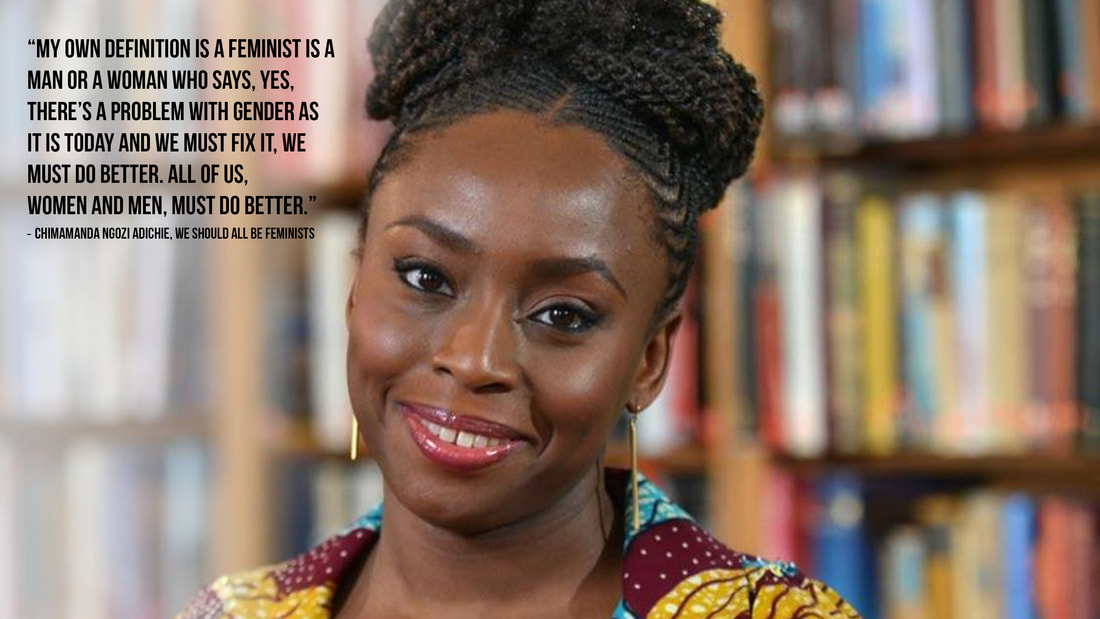
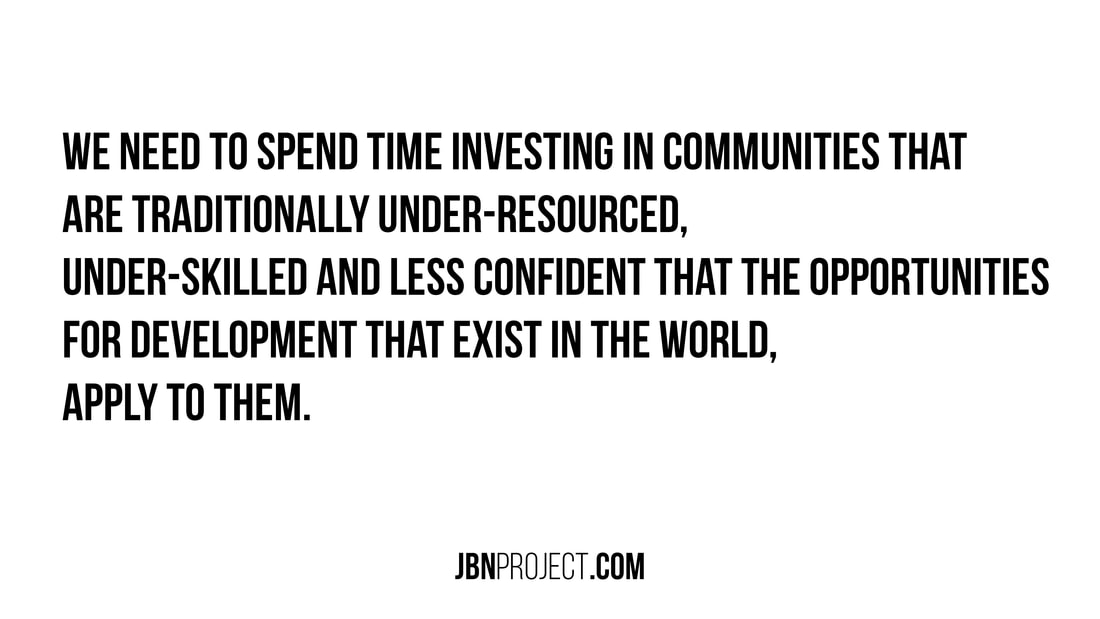
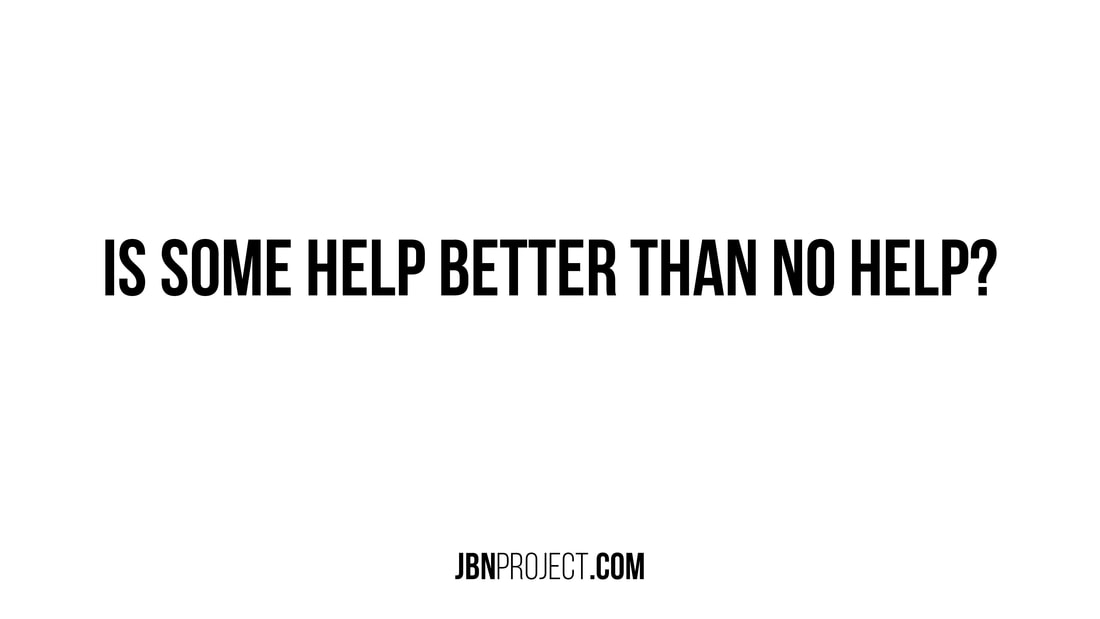
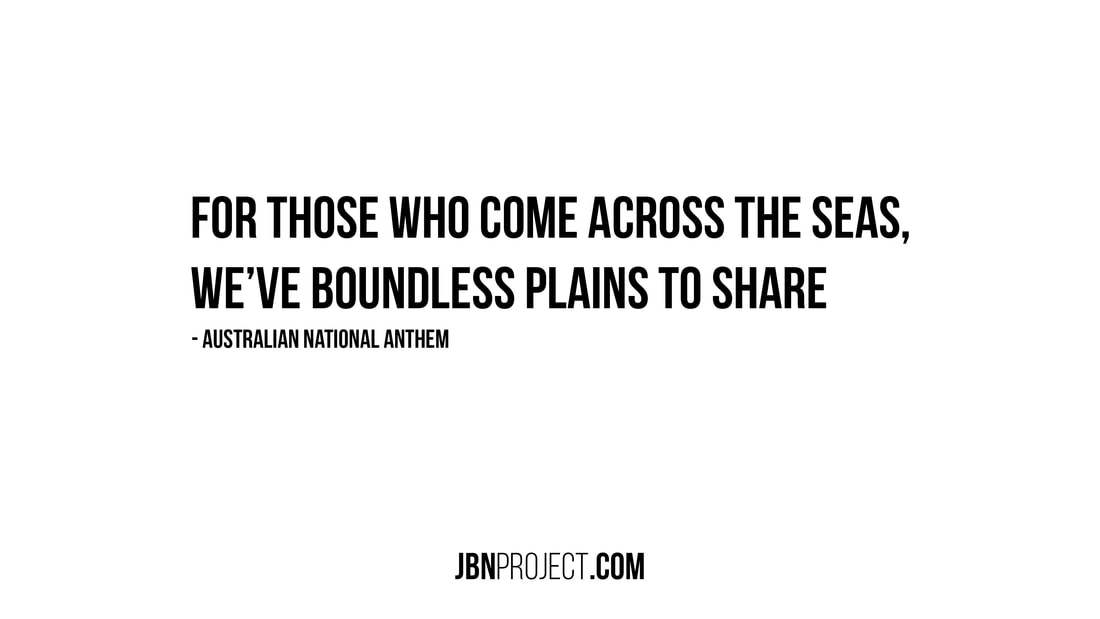
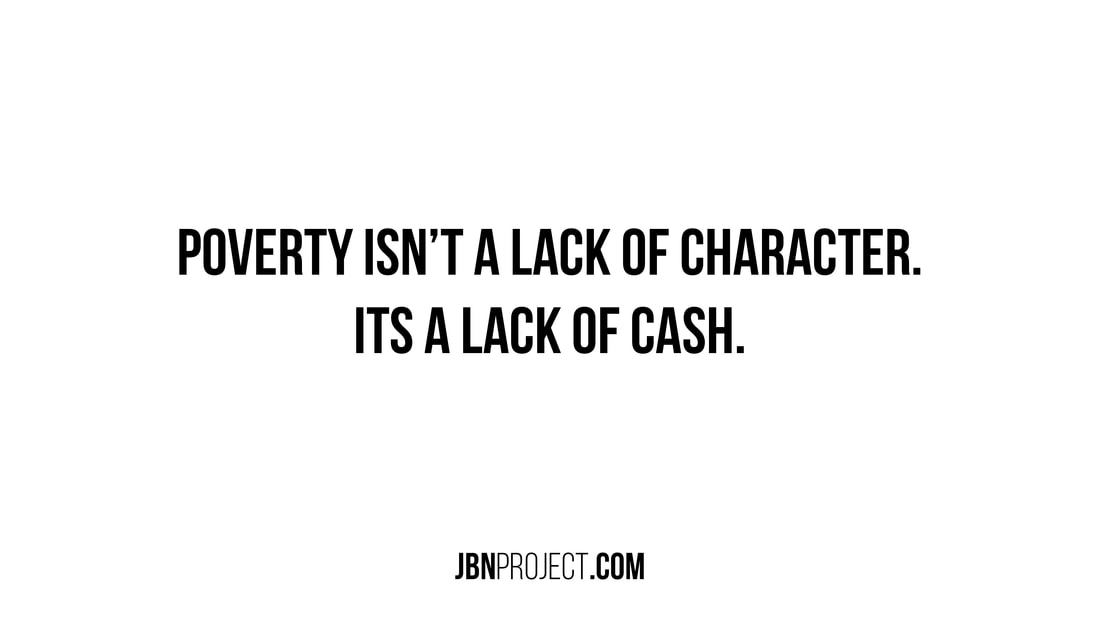
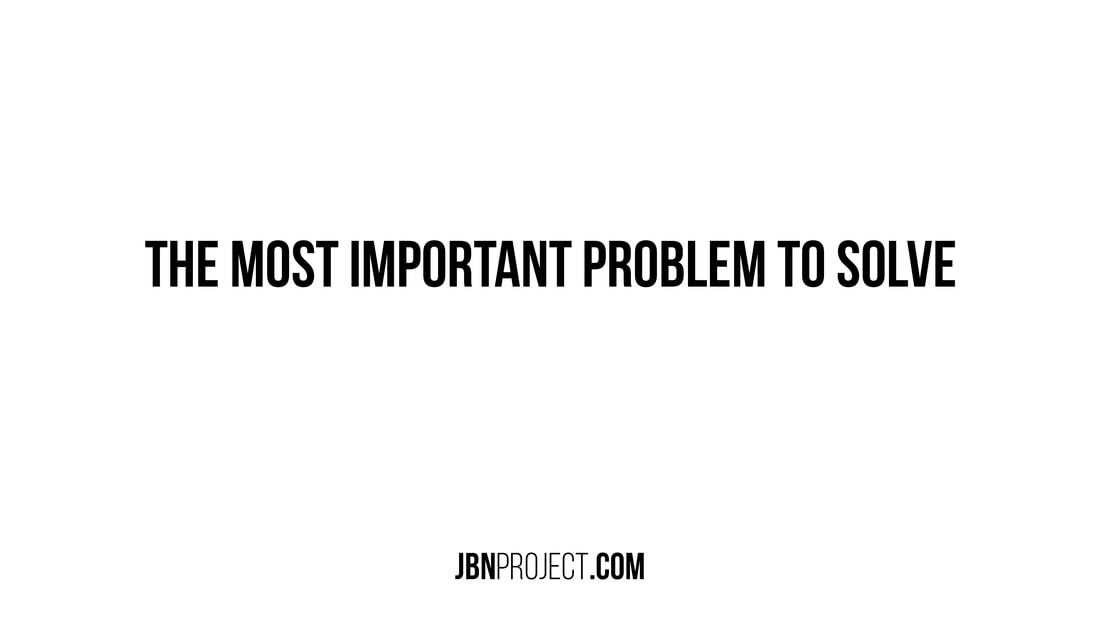
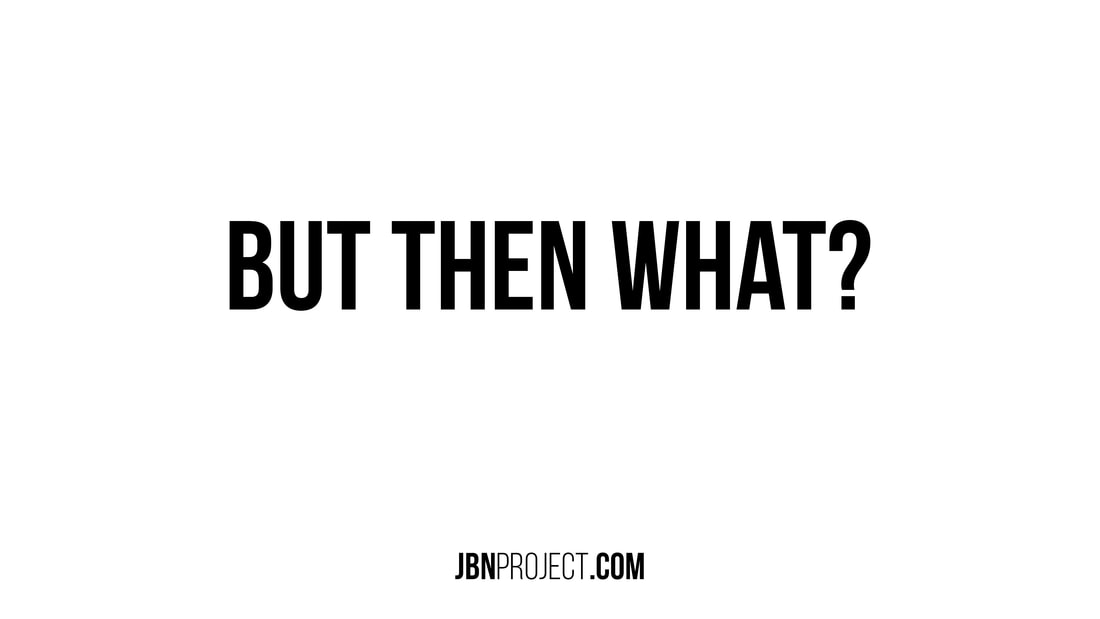
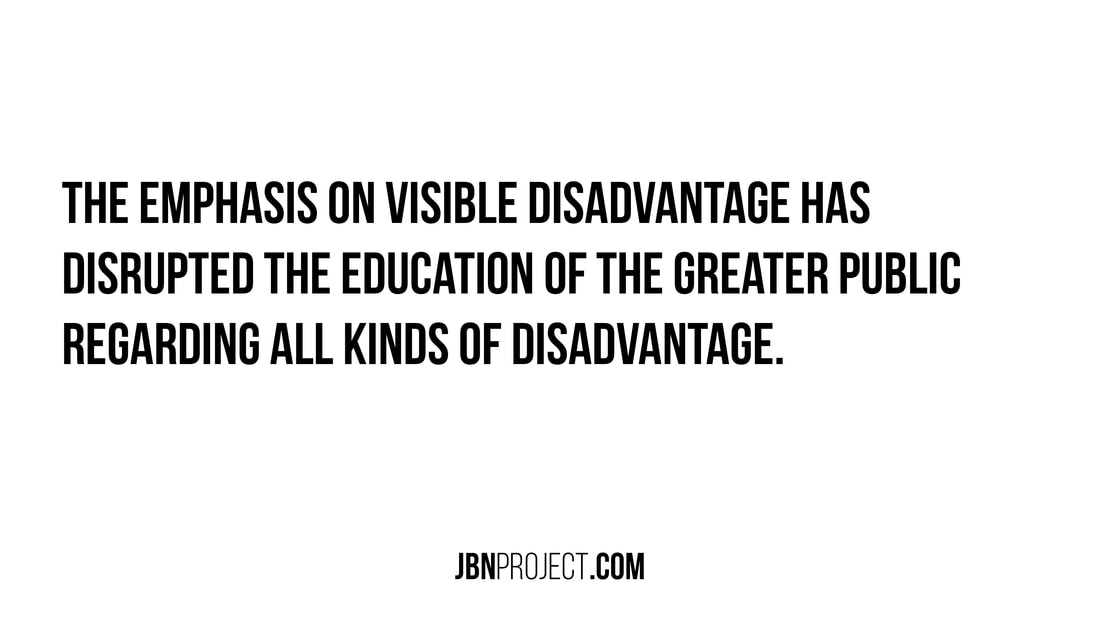
 RSS Feed
RSS Feed